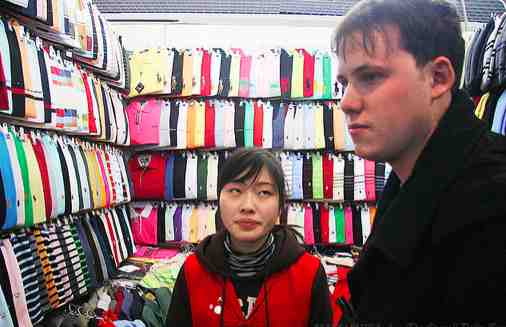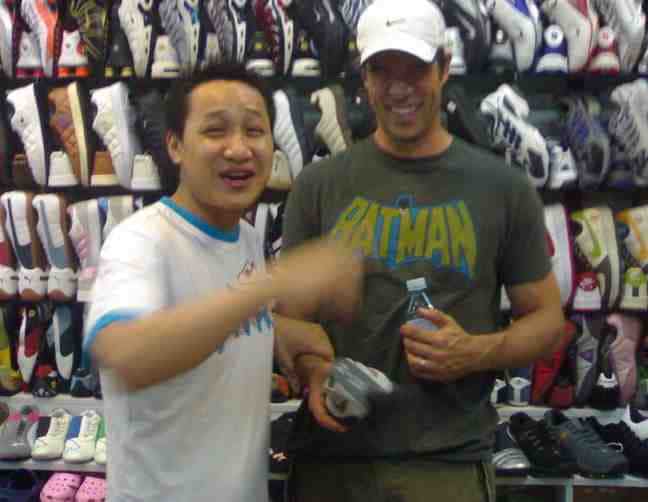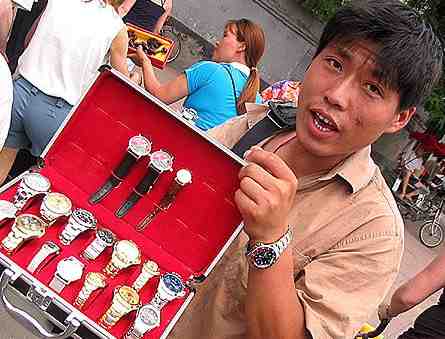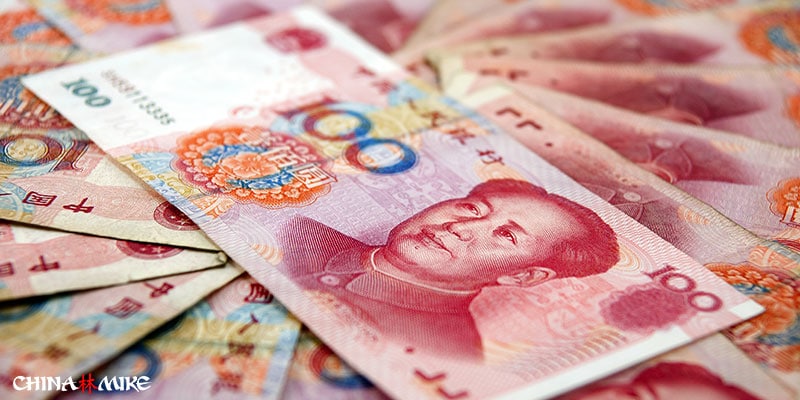Bargaining in China is an extreme sport and art form.
I’m being sarcastic…kind of. The reality is that unless you want to pay a premium for the items you buy in China, learning to bargain is an essential skill.
In this foreigner’s guide to bargaining in China, we’re going to be covering:
- When you can and can’t bargain in China
- Is it ethical to haggle in China? (i.e. “first world guilt”)
- Some basic bargaining tips & tricks
Hopefully, by the end of this guide, you’ll feel a little more confident to do your own bargaining in China.
And maybe…just maybe, you’ll save a few dollars in the process!
When You Can & Can’t Bargain in China
Bargaining happens pretty much everywhere in China. You might be surprised to learn where it is acceptable to bargain. However, there are some places where you can’t bargain:
- Department Stores: As a rule of thumb, you shouldn’t expect to bargain at any large stores, corporate chains, or department stores — the employees have neither the authority nor incentive to haggle with you.
- Restaurants: Also, don’t bother trying to bargain in a restaurant (though you might have some luck if you’re with a large group of people in an empty restaurant).
That being said, here is an incomplete list of the places where you CAN bargain in China:
- General Shopping Stores: It’s possible to bargain when shopping for most goods (clothes, gifts, art, jade, etc) if it looks like an independently owned business. Sometimes these shops will have a sign proclaiming, “All prices are final”…but it’s not always true (unless business is booming, they’d rather make some money than none). Sometimes they really do stick to their guns and won’t budge on price, but it’s worth a try.
- Hotels: Always worth trying to get a lower rate. Depending on their occupancy rate, you can sometimes get discounts even at large, corporate hotel chains by simply asking or committing to several nights.
Is it Ethical to Haggle in China?
I’ve known a number of foreigners who refuse to haggle and are content paying the price that is first offered (which is usually about 2x-3x what a local Chinese would pay).
Perhaps you struggle with what is known as “first world guilt”. This is the interesting belief that because you make more money, paying a premium is your duty.
Some foreigners view paying full price as some sort of charitable giving.
Of course, you are perfectly free to spend your money as you please.
The problem is that these people who refuse to haggle are kind of ruining it for the rest of us by perpetuating the myth of the rich, clueless foreigner.

For better or worse, many Chinese have a perception of Westerners (especially Americans) as being overly naïve, especially when it comes to haggling (probably mostly due to inexperience).
And with good reason too — the above laowai who willingly pays the first price becomes the stuff of urban myths. In general there’s not a lot of crime in China, but what these store owners do can be straight wrong!
There’s something very important that you need to remember as you haggle in China:
A Chinese shopkeeper is never going to sell to you at a loss.
The seller may try to make you feel guilty for the low, low, low price that they’re giving you, but they won’t sell if they’re not making a profit.
The only genuine disappointment you might receive from them is the disappointment of not cheating you out of an extra money.
Basic Bargaining Tips & Tricks
Throughout the years of living and traveling throughout the country, there are a number of tricks I’ve picked up in regards to bargaining in China.
This is a long list of tricks, but if you implement just a few of them, you could save yourself quite a bit of time, money and headache.
- Don’t feel embarrassed or guilty for haggling. It’s part of their culture and they fully expect customers — both Chinese and foreign — to drive a hard bargain. It’s a game, and they expect you to play it!
- Merchants are professional sellers. They haggle with tons of customers every day. Bargaining is second-nature for them (unlike for most Westerners). So don’t get too worked up if you still end up paying more than the Chinese price. But if you follow these tips, you’ll at least avoid being a total chump.
- Avoid the “Anchor”. Don’t let them “anchor” you with their first price. Sellers love to use this psychological anchoring trick by starting with a grossly inflated price in order to fool customers into thinking that they’re getting a deal after some haggling. For example, if their lowest price is Y50, they’ll start with Y200. Then later, you walk away feeling like a haggling stud because you paid Y150.
- Don’t Shop Impulsively. The only exception here is if you’re pressed for time and you don’t think you’ll be able to find a similar item. This may seem obvious, but always comparison shop and take mental notes to get a sense of how much things cost.
- Start with a Max Price. Before starting negotiating, have a mental maximum price in mind. Otherwise, it’s too easy to get emotionally attached and invested in the process and end up regretting a purchase.
- Don’t Express Too Much Interest. Even if they can’t understand everything you’re saying, they’re watching your reactions. I always laugh when I see foreigners blowing their negotiating positions from the start. (“Honey look! That stuffed monkey head would be perfect in my den! I must have it!! So…uh…out of curiosity, how much is this anyway?”). Instead, adopt a casual “I could take it or leave it” attitude (“Hmmm…maybe I’ll buy this for my mother…”
- Don’t Take it Personally! The seller views this as a business transaction and is emotionally detached. Sometimes they’ll make a big show about pretending to be offended by your counter-offer — don’t feel bad, it’s all part of the game. Hate the game, not the player. Improve your leverage by pointing out any defects or poor workmanship (don’t feel bad, the locals will unabashedly disparage merchandise!). Similarly, don’t be shy about telling them how cheaply another vendor was offering (feel free to stretch the truth).
- Think Outside the Box. If you’re at a point where there’s no more price movement, be creative! For example, if you’re buying a bigger item, ask if they’ll throw in some cheaper gift item. Also volume discounts are effective (e.g. pool purchases with a friend).
- Keep it All in Perspective. How much of your time and energy are you investing to save a few bucks? How much do you normally spend at home on just food and drinks? And think of how much more those few bucks might mean to the other person and their family.
Basic Bargaining Process in China
Let’s break down the process to execute good bargaining in China. Let’s set the stage first.
5-Step Bargaining Process
1. Set your maximum price
You’re interested in buying a Mickey Mao painting and your mental maximum price is Y250.
2. Listen & react to the opening price
The seller gives you an opening price of Y500 (although unbeknownst to you, his lowest price is Y150). Upon hearing the price of Y500, act shocked and borderline offended, as if you know it’s way overpriced (even if you’re not sure). Personally, I like to keep it light and playful and so I will express exaggerated jaw-dropping mock horror. Three useful words to learn: “tai gway lah“, meaning “too expensive” (rhymes with “buy Layla.”)
3. Be Patient…then Counter-Offer
Don’t be quick to counter-offer — use silence and see if he drops the price first (also gives you a psychological edge). Be reluctant to state any price and keep working his price down. Eventually, offer a much lower price (somewhere around 20-50% of their first price). In this scenario, let’s say you offer Y100. Don’t be quick to counter-offer or assume you’re getting a good deal just because he’s meeting you in the middle. Remember: As soon as you state a price (which might be way too high), your only place to go is UP.
4. Rinse and Repeat the Haggling
He’ll either stick to his original price or offer some movement, say Y480. Again, be wary about being anchored to his first price. Just because he’s not offering much movement, doesn’t mean that you’re anywhere near his lowest price.
5. Be Prepared to Walk Away
Let’s say after a few rounds, you get him down to Y300. Your final ploy is to pull the old “walk away” technique. You slowly walk away….and he pulls you back and gives his “final price” of Y250. You buy it, patting yourself on the back for “saving” Y250 (or 50% off of his anchored, inflated Y500 opening price).
Okay, it’s a win-win, right?
The problem is — without actually walking away and comparison-shopping — it’s very likely that you overpaid since you have no idea of how low he’d actually go.
In other words, without comparison shopping, he has the advantage because he knows his exact lowest price…and is simply working towards YOUR maximum price.
Advanced Techniques: Bargaining in China
The biggest advantage you have is TIME.
No one is forcing you to make a decision on the spot — you’re free to leave and comparison shop (and he has to risk whether you’ll come back). Also, you always have the option of coming back later and deciding to buy. So avoid the (above) “one-off” bargaining scenarios, especially for higher-ticket items.
Assuming that you can find a similar item elsewhere — and aren’t leaving town immediately — you can often get a better price by actually walking away in order to “test” his walk-away price (i.e. to get a better idea of actual price).
Haggle with a few different sellers by literally walking away to get a better sense of the “local price”.
As you walk out, act casual and give him ample opportunity to continue to drop the price (I usually say something like, “Okay, tomorrow, tomorrow!”).
But make sure to keep your counteroffer sufficiently low, otherwise it might higher than his lowest price and he might accept it!
Determine the Baseline Price
In the same scenario, let’s say the last price he offered as you walked away was Y180 (much closer to his absolute lowest price of Y150).
Now you have a baseline price and a better idea of the fair market rate.
You can then use this information to negotiate more intelligently with seller B (say, by sticking to your guns at Y130). If you have the time, repeat this walk-away process with other sellers. After you’ve gathered a few actual walk-away prices, you can feel confident that you got a good price.
Or let’s say that you can’t find a better price than the initial Y180 price anywhere else. At worst, you can go back to seller A (or most other sellers) later and feel pretty good that you didn’t end up paying the sucker price.










